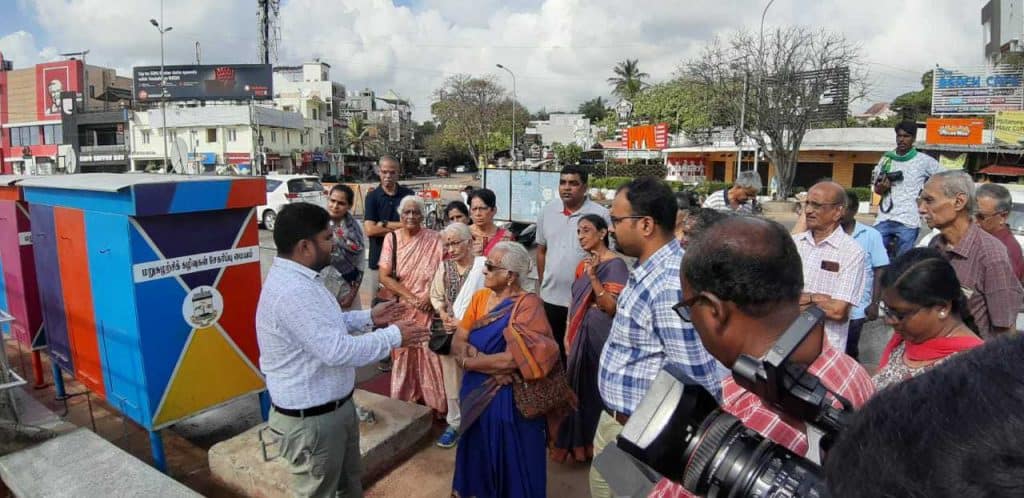Besant Nagar beach got a new tag this week. On January 6th, it was declared a litter free zone, in the presence of Chennai Corporation Commissioner G Prakash, Regional Deputy Commissioner, South, Alby John Varghese and other zonal level officers.
The announcement was a welcome move, considering the fact that civic forums such as SPARK have been fighting for it for many years now. But many residents have a host of questions regarding this: What exactly is a litter free zone? How sustainable is it? Has the Corporation rushed to make an announcement too soon?
Chennai Corporation is implementing three important measures according to Alby John.
#1: Bessie used to be cleaned in the mornings and evenings earlier. However, a round-the-clock clearing of garbage is proposed since it has been made a litter-free zone. Working in two shifts, a total of 36 conservancy workers have been deployed to clean the beach. “Doesn’t it sensitise citizens when they see a worker picking up the litter, immediately after they drop it?” asks Alby John.
Reality check: Those who visited Bessie were impressed with the clean look. “I would not say there is no litter. But workers were actively cleaning it. A beach cleaning machine picked up the trash early in the morning,” said Hosanna Rajilene, who visited the beach on the morning of January 9th.
#2: Vendors at the beach must take responsibility for the garbage generated in their shops. From spring potato shops to fish stalls, Besant Nagar beach has a total of 340 vendors, according to the Corporation.
“Vendors should tell their customers not to litter the beach. Since Bessie has a floating population, it is not feasible for the Corporation to educate them all. However, we will soon collect fines from those who litter, in order to keep the beach clean,” said Alby John.
Reality check: Visitors still litter the beach with straws, sticks and plastic, even though a majority of the eateries have dustbins.

Corporation Commissioner G Prakash declared Besant Nagar beach as a “litter-free zone”. Pic: C Namachivayam
#3: Bins have been placed across the beach for the visitors to throw waste. Sensitisation drives conducted across Besant Nagar on waste management will bring in change, hopes Alby John.
Reality check: Bins are placed at all corners of the Bessie. However, you will often spot waste strewn around the bin, but not in it. “Not just conservancy workers, citizens too must be aware and take steps to ensure that the beach stays litter free,” said Arjun N, a regular visitor.
More stringent measures needed?
According to the members of SPARK, more stringent measures need to be implemented to ensure a clean Bessie. They feel that the Corporation has not done enough before declaring the beach a litter-free zone. “Why hasn’t the Corporation removed encroachments on the beach, as they contribute most to the waste generation?” questions Kamakshi Subramaniyam of SPARK.
“A mere declaration will not make the beach litter free. The civic body should have a proper strategy to sustain it and public and vendors should be held responsible,” said T D Babu, a resident and a SPARK member.
| Also read:
Let’s go to Spring Potato beach; sorry, we mean Besant Nagar beach |